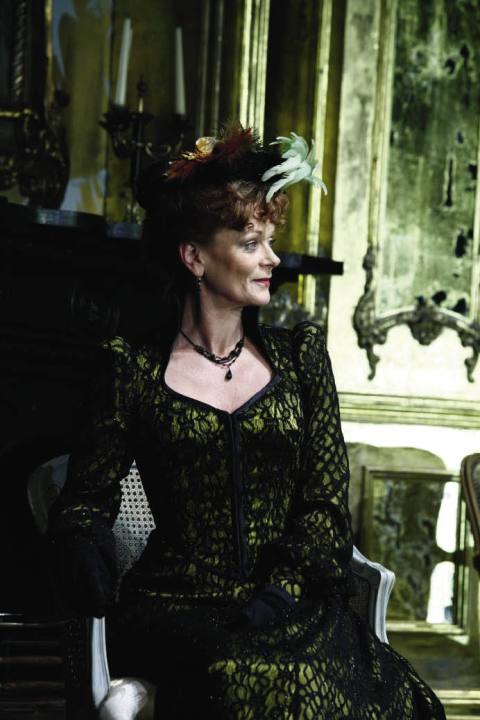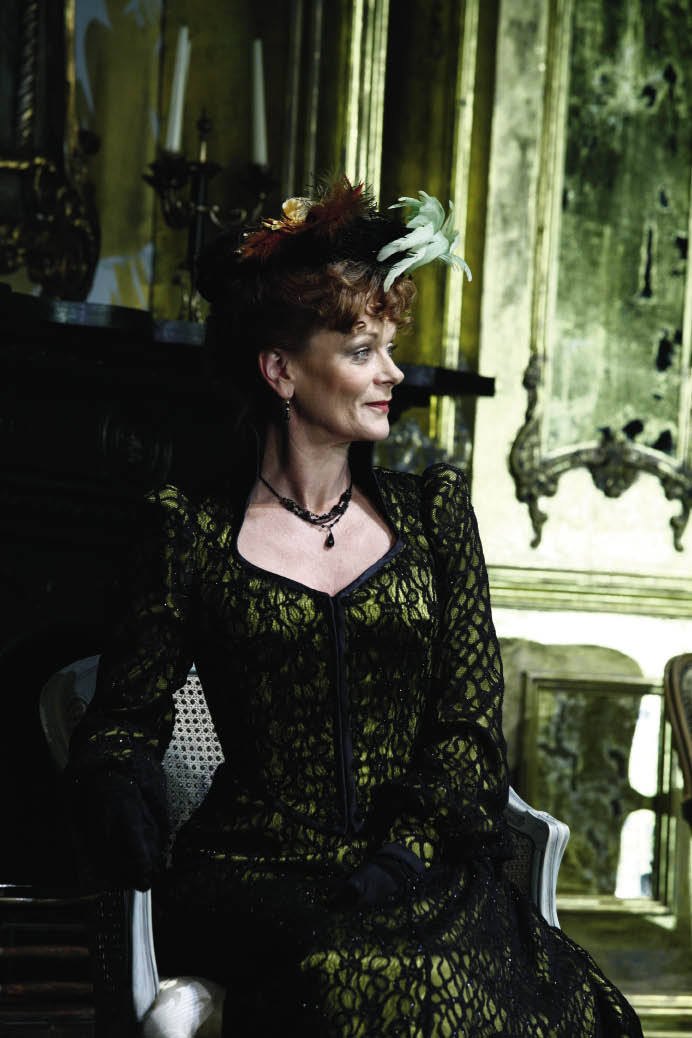Ed Hall, boss of the Hampstead theatre, places before our consideration a new play by Athol Fugard. The gong-grabbing, apartheid-drubbing South African author creates dramas that are rich in humanity and compassion, filled with curiosity about the architecture of suffering, and distinguished by flights of poetic soulfulness. And by God, they’re dull.
Fugard doesn’t do action, romance or suspense. He does chat. Lots of it. His monologues stream in and out of one another in a textured gloop of Oscar-hinting earnestness. Generally, he deploys the same easy-to-assemble stage furniture: a shack dumped on the orange savannah surrounded by poverty-stricken fences. The shack can be assembled from the contents of a skip. The fencing can be cadged from nearby allotments. And the burnished earthen carpeting of Africa’s native soil — or ‘sand’ as it’s also known — can be bought in plastic bags from a builders’ merchant.
Fugard’s piano-key plots usually bring white and black together in an encounter that is achingly symbolic, precipitately emotional and completely bonkers. The Train Driver introduces us to a train driver whose train has crashed into a suicidal mum and her children at 100mph. Haunted by an overpowering urge to find their tombs and exorcise his guilt, the railwayman comes upon a trusty black grave-digger, with a belly the size of a Space Hopper, who offers to help find the burial spot. Hey presto, the classic Fugard circus-act — one Afrikaaner, one tribesman — is initiated.
The characters stand for things. The tribesman equals Rustic Integrity, the Afrikaaner equals Dethroned Arrogance. The tribesman speaks broken English. The Afrikaaner tries to emulate him but can’t assault the language hard enough to fracture it. During the drama they learn something tritely profound about each other — ‘he is poor but wise, while I am privileged yet troubled’ — and having exchanged trivialities they leave the play, ennobled.
The plot, too, stands for something. I wonder what? A high-speed chamber of riveted steel hurtling through the African night and bashing into some depressed peasants. Let’s think. How about colonialism? Yup, I reckon that’s it. (It usually is.) Though one couldn’t fault the integrity of this production, directed by the author, and one couldn’t question its belief that it had something worth saying, I found it impossible to identify what the play was for.
An Ideal Husband is a tough ticket for audiences because we come to it back to front. For Wilde, the play represented a major development in his dramatic craft but we know where it leads, we’ve already scaled the heights. We take our seats exhilarated by their views, beguiled by their aromas, our heads crammed with aphorisms and insouciant jokes, our senses prepared for the complete Oscar Wilde experience — a dazzling lightweight comedy bestrewn with elegant philosophical bons mots. But we’re not in the high peaks any more. These are the mundane foothills.
The play is a sociopolitical family thriller about sexual betrayal and corruption and, though it’s amusingly laced with flashes of farce, the comic ornaments are always shadowed by pathos. Lindsay Posner, the director, approaches this complexity of tone and theme admirably well. The emotional underpinning convinces. The flamboyant styling is correct. The jokes and the bursts of physical comedy are carried off in style. There’s only one wobble, early on, where the artificiality of the characters and their lexical inventiveness create an odd feeling of emptiness, of futility even, but the production recovers and finds a proper sense of itself.
Everything is dominated by Stephen Brimson Lewis’s astonishing set. Great chunky precipices of distressed gold burn with solar intensity and almost overpower the actors. Samantha Bond is crisply sexy as the dolled-up deceiver Mrs Cheveley and Elliot Cowan is pretty good as the lisping layabout Viscount Goring. Mrs Cheveley’s friend, the wronged but redoubtable Lady Chiltern, is played by a becalmed Rachael Stirling (too young to be a contemporary of Ms Bond). Wilde never again created such a bland leading role. Innocent martyrdom writes white on the page and it barely exercises Rachael Stirling. A pity because she plays imperious cattiness with some brilliance. She’ll make a terrific Lady Bracknell in three decades’ time.
The Ivy hosted a curious event last week, a celebration of its history (which was not a promotion, I assure you) consisting of a play about the Ivy, staged at the Ivy, watched by Ivy regulars. Heavenly Ivy, by Ronald Harwood, is a dramatised history of London’s theatreland seen from the perspective of a centrally located restaurant which takes its name from the saying ‘actors cling together like ivy’. The play’s director, Sean Mathias, and his close friend Gandalf (or is it some other wizard? I don’t keep track of Ian McKellen’s film career) chortled away happily. All very cosy. Nice grub. I had some bangers. It was at the Ivy. Did I say that?








Comments